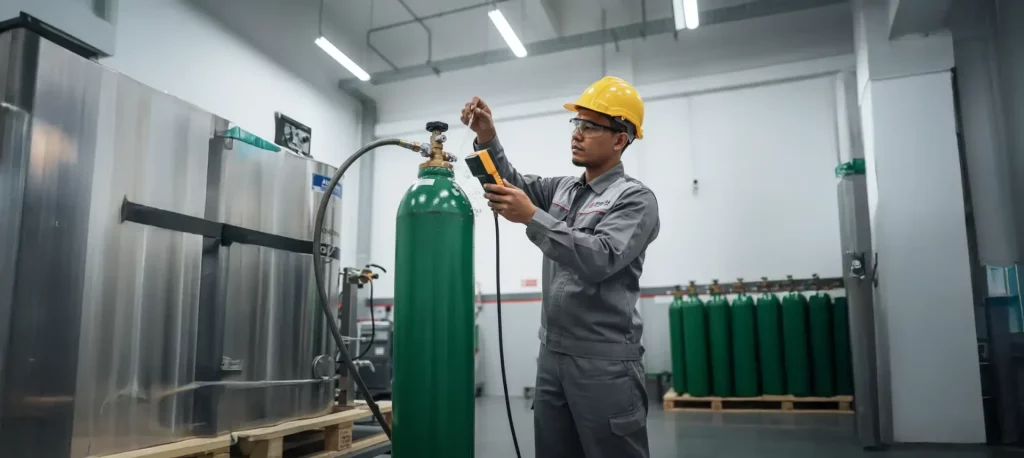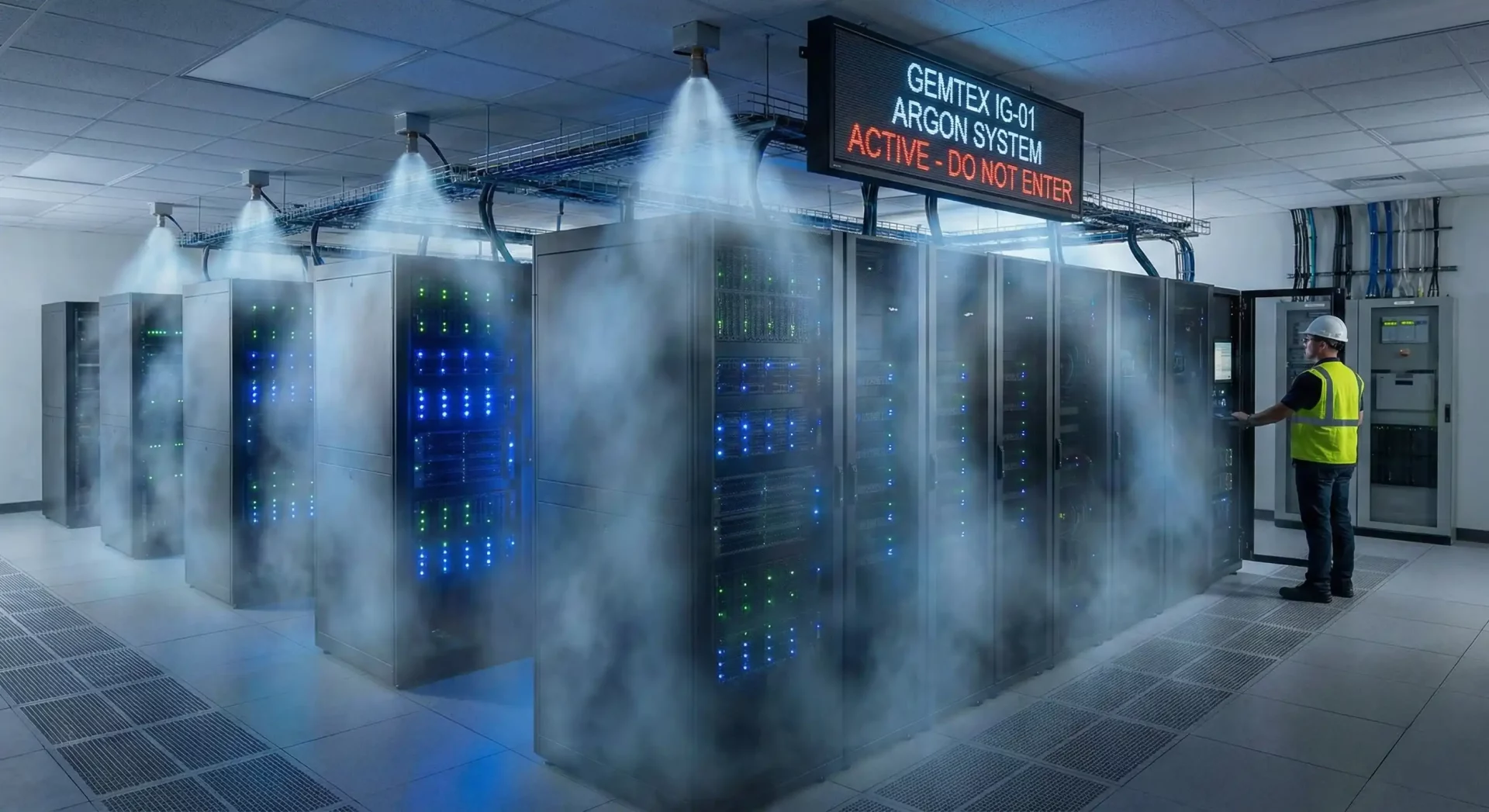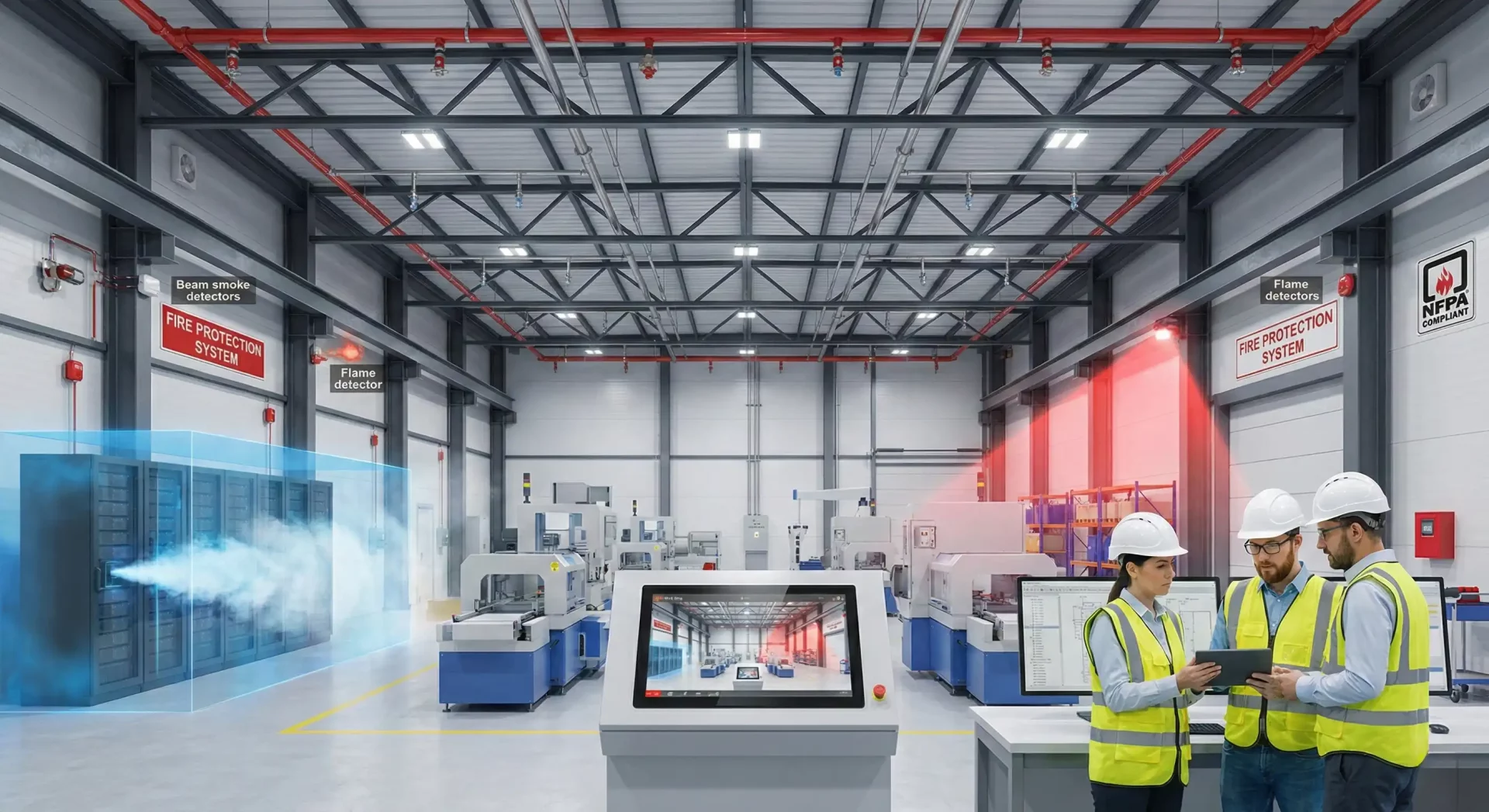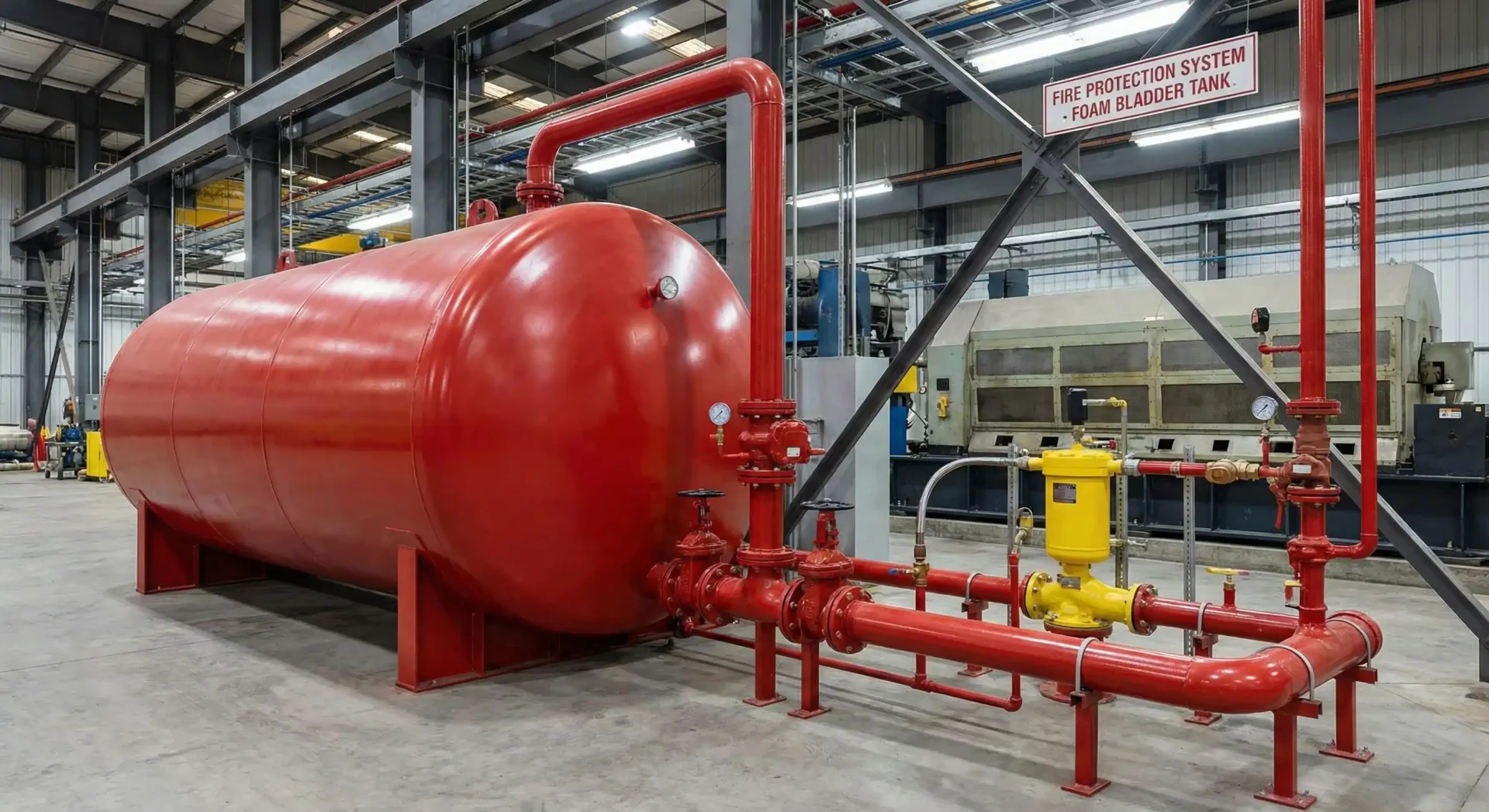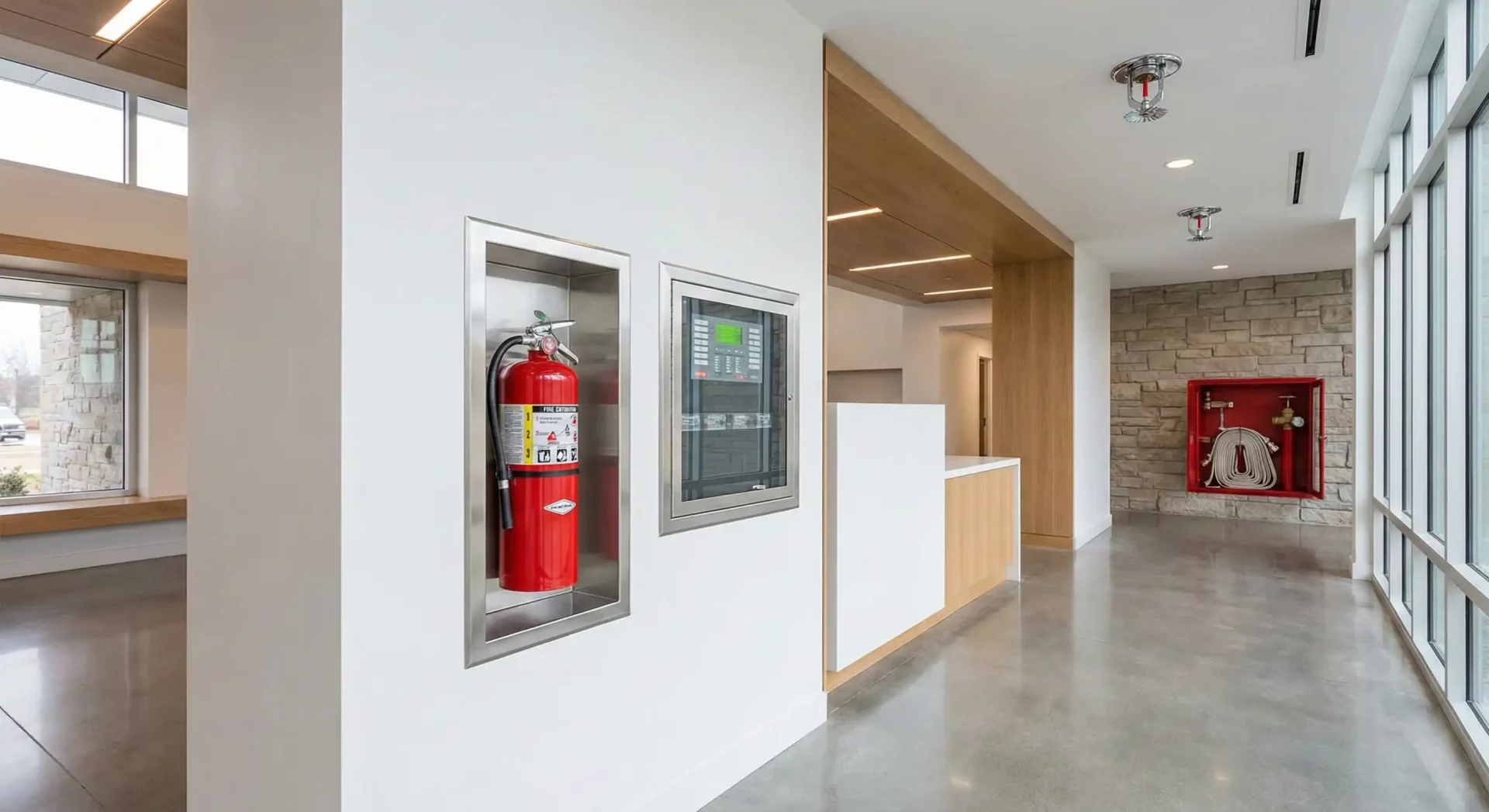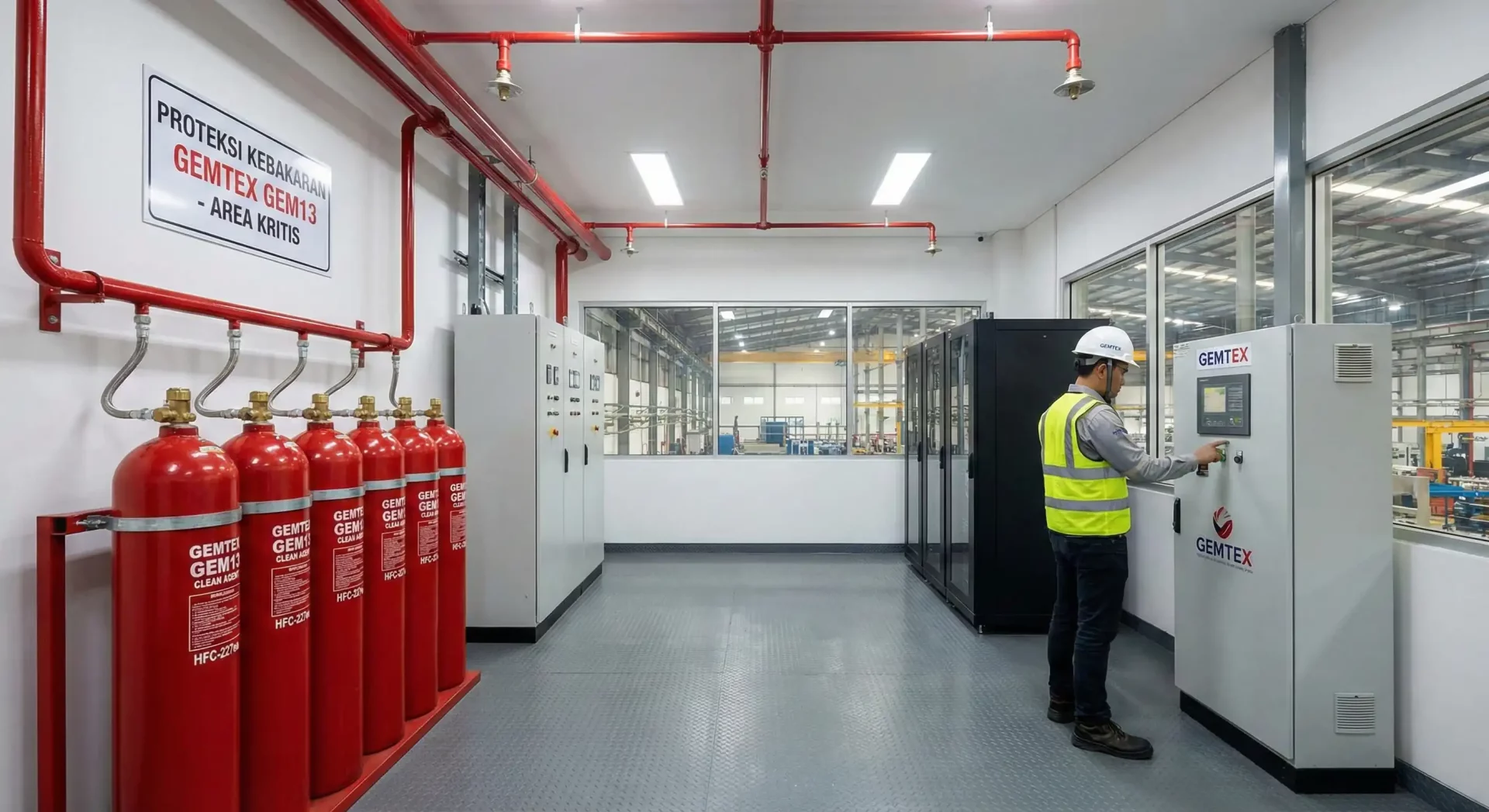Professional Solution for Maintaining Your Inergen Fire Suppression System
The Inergen Fire Suppression System is one of the most reliable, safe, and eco-friendly fire protection technologies, commonly used in data centers, control rooms, museums, and industrial facilities.
However, the system’s effectiveness depends heavily on the gas pressure inside the Inergen cylinders. When the pressure drops, the system requires Inergen refill (gas recharging) to ensure it remains ready for emergency activation.
As a specialist in fire protection systems, Adiwarna Anugerah Abadi provides professional Inergen refill services that meet NFPA 2001 and ISO 14520 standards — ensuring your system stays reliable and compliant with safety regulations.
Why Is Inergen Refill Important?
Inergen gas (IG541) is a mixture of Nitrogen (N₂), Argon (Ar), and Carbon Dioxide (CO₂) stored under high pressure (200–300 bar).
Over time, the pressure can decrease due to:
- Minor leaks on valves or fittings,
- System activation during fire events, or
- Routine testing and commissioning.
Low pressure may prevent the system from releasing gas effectively during a fire, compromising its protective function.
Therefore, regular Inergen refilling is essential to maintain system performance and readiness.
Read also: Inert Gas: An Environmentally Friendly and Effective Fire Extinguishing Solution
Inergen Refill Process at Adiwarna Anugerah Abadi
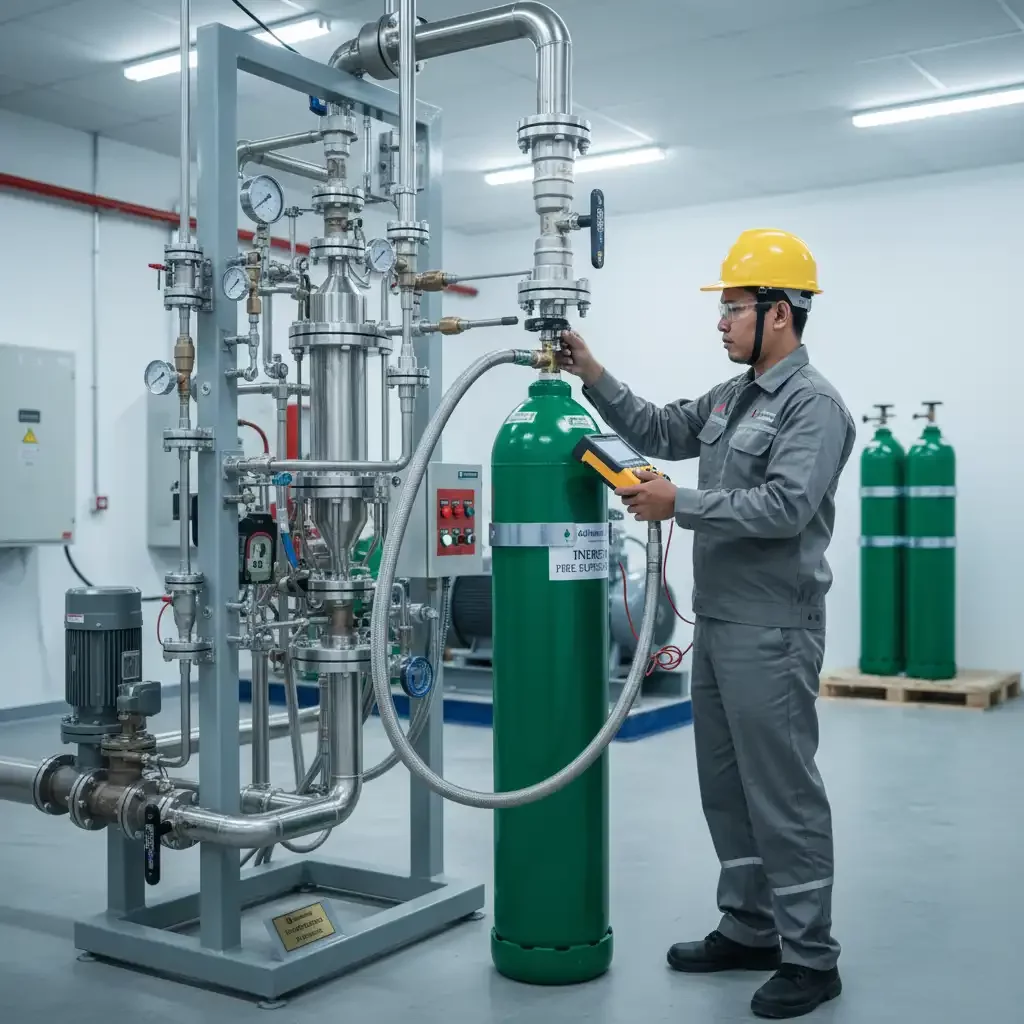
Our refill process follows strict international safety and quality standards, including:
- Initial Pressure Inspection
Each cylinder is checked using calibrated pressure gauges to assess its current pressure. - Cylinder Emptying and Cleaning
The cylinder is completely emptied and cleaned to remove moisture or contaminants. - Recharging with New Inergen Gas
The precise gas mixture of Nitrogen, Argon, and CO₂ is refilled using a high-pressure charging system with exact calibration. - Pressure and Leak Testing
After refilling, the cylinder is tested for leaks and pressure consistency to ensure safe operation. - Certification and Labeling
Every refilled cylinder is tagged with updated pressure data, refill date, and certification for inspection purposes.
When Should You Refill Inergen Cylinders?
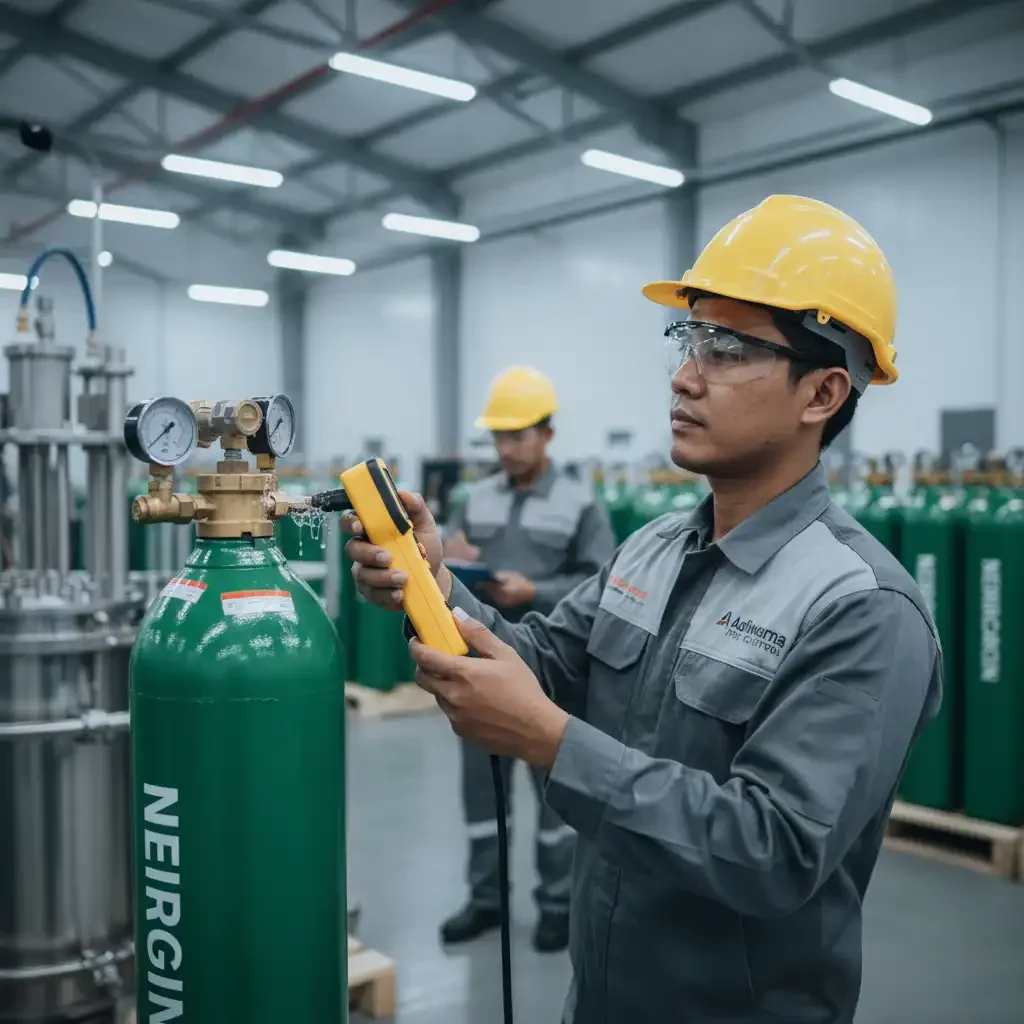
In general, Inergen refilling should be performed every 5 years, or sooner if a pressure drop exceeding 10% is detected.
Refill is also mandatory after:
- System discharge during a fire,
- Commissioning discharge testing, or
- Annual inspection showing low pressure.
Regular refill ensures the Inergen Fire Suppression System remains fully operational and reliable in any fire emergency.
Advantages of Inergen Refill Services by Adiwarna Anugerah Abadi
We deliver more than just a refill — we provide comprehensive fire suppression maintenance that ensures your system performs flawlessly.
🔹 Certified Technical Team — Skilled professionals with years of experience in fire suppression systems.
🔹 High-Precision Calibration Equipment — Ensures exact gas pressure and mixture ratios.
🔹 Safe and Efficient Process — Conducted in a controlled high-pressure filling facility.
🔹 Guaranteed Quality — Each cylinder is issued with a refill test certificate and updated inspection label.
Complete Fire Suppression Solutions from Adiwarna Anugerah Abadi
Beyond Inergen refill services, we provide end-to-end fire protection solutions, including:
- Design and Engineering
- Supply
- Installation
- Testing and Commissioning
- Service and Maintenance
📞 Contact Us: +62 21 2902 0216
📧 Email: sales@adiwarna.co.id | corpsecretary@adiwarna.co.id
🏢 Address: Perkantoran Mutiara Taman Palem No.53, Outer Ring Road, Cengkareng, West Jakarta 11730, Indonesia

